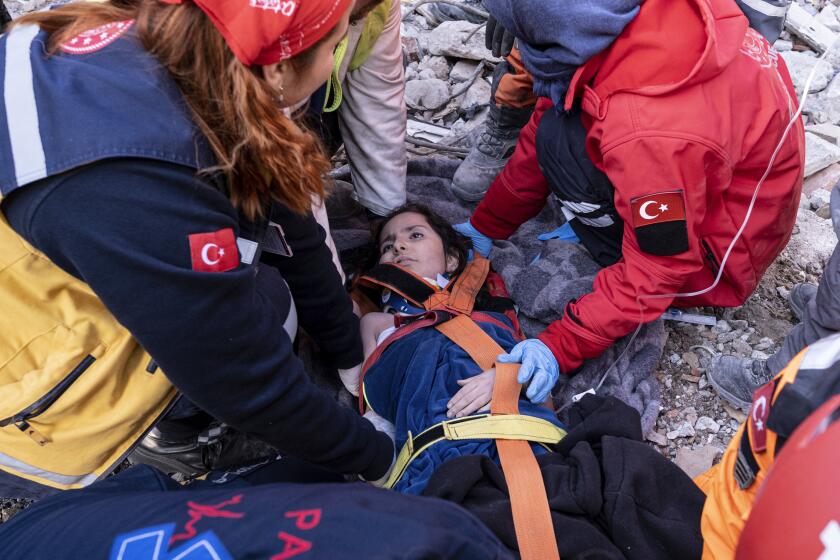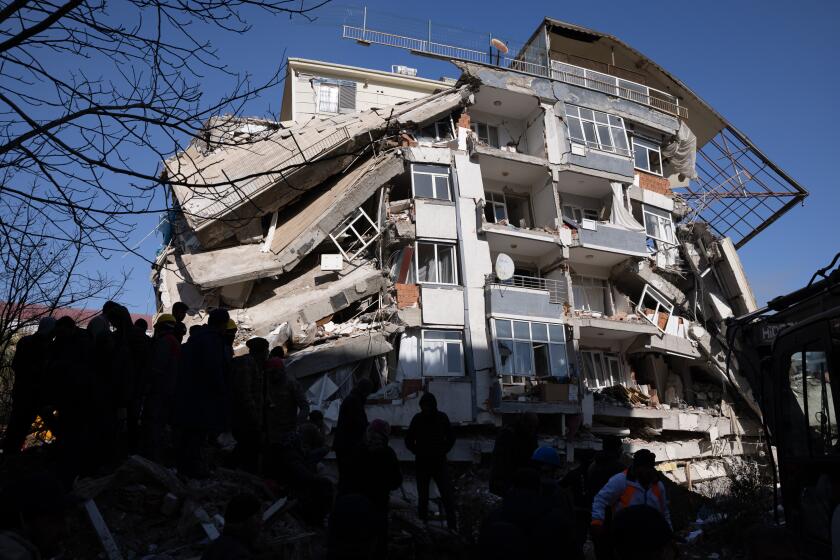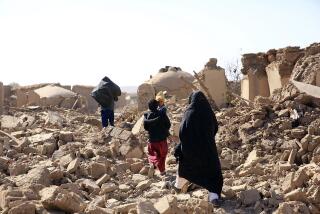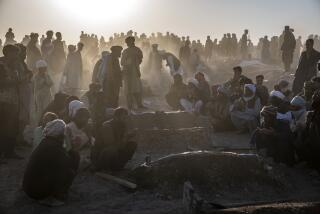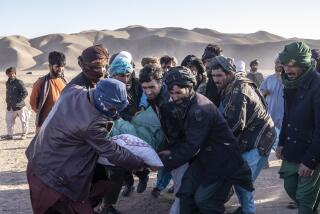Three dead and hundreds hurt after new quake hits battered Turkey and Syria

6.4 magnitude earthquake has jolted Turkey and Syria in a region which was devastated by a massive tremor two weeks ago.
ANKARA, Turkey — A new magnitude 6.4 earthquake on Monday killed three people and injured more than 200 in parts of Turkey devastated two weeks ago by a massive quake that killed tens of thousands, authorities said. More buildings collapsed, trapping some people, while scores of injuries were recorded in neighboring Syria too.
Monday’s earthquake was centered in the town of Defne, in Turkey’s Hatay province, one of the worst-hit regions in the magnitude 7.8 quake that struck on Feb. 6. It was felt in Syria, Jordan, Cyprus, Israel and as far away as Egypt, and followed by a second, magnitude 5.8 temblor.
Turkish Interior Minister Suleyman Soylu said three people were killed and 213 injured. Search and rescue efforts were underway in three collapsed buildings where six people were believed trapped.
In Hatay, police rescued one person trapped in a three-story building and were trying to reach three others, HaberTurk television reported. It said those trapped included movers helping people shift furniture and other belongings from the building that was damaged in the massive quake.
Syria’s state news agency, SANA, reported that six people were injured in Aleppo by falling debris. The White Helmets, northwestern Syria’s civil defense organization, reported more than 130 injuries, most of them non-life threatening, including fractures and cases of people fainting from fear, while a number of buildings in areas already damaged by the quake collapsed.
The Feb. 6 quake killed nearly 45,000 people in both countries — the vast majority of them in Turkey, where more than a million and a half people are in temporary shelters. Turkish authorities have recorded more than 6,000 aftershocks since.
HaberTurk journalists reporting from Hatay said they were jolted violently by Monday’s quake and held on to each other to avoid falling.
In the Turkish city of Adana, eyewitness Alejandro Malaver said people left homes for the streets, carrying blankets into their cars. Malaver said everyone is really scared and “no one wants to get back into their houses.”
Mehmet Salhaoglullari, from a village near Samandag, said he was eating at a restaurant when the building began to shake.
“We all threw ourselves outside and we continued to shake outside,” he said.
Survivors are still being rescued in Turkey and Syria more than a week after a quake killed more than 43,000 people. How long can you live trapped under rubble?
In the Syrian city of Idlib, frightened residents were preparing to sleep in parks and other public places, while fuel lines formed at gas stations as people attempted to get as far as possible from any buildings that might collapse.
The Syrian American Medical Society, which runs hospitals in northern Syria, said it had treated a number of patients — including a 7-year-old boy — who suffered heart attacks brought on by fear following the new quake.
President Recep Tayyip Erdogan visited Hatay earlier Monday, and said his government would begin constructing close to 200,000 new homes in the quake-devastated region as early as next month.
Erdogan said the new buildings will be no taller than three or four stories, built on firmer ground and to higher standards and in consultation with “geophysics, geotechnical, geology and seismology professors” and other experts.
The Turkish leader said destroyed cultural monuments would be rebuilt in accordance with their “historic and cultural texture.”
Erdogan said about 1.6 million people are in temporary shelters.
The catastrophic magnitude 7.8 earthquake that struck Turkey a week ago should be a warning to Californians.
The Turkish disaster management agency, or AFAD, has raised the number of confirmed fatalities in Turkey from the earlier earthquake to 41,156. That increases the overall death toll in both Turkey and Syria to 44,844.
Search and rescue operations for survivors have been called off in most of the quake zone, but AFAD chief Yunus Sezer told reporters that search teams were pressing ahead with their efforts in more than a dozen collapsed buildings — most of them in the province of Hatay.
There were no signs of anyone being alive under the rubble since three members of one family — a mother, father and 12-year-old boy — were extracted from a collapsed building in Hatay on Saturday. The boy later died.
The European Union’s health agency has warned of the risk of disease outbreaks in the coming weeks.
The European Center for Disease Prevention and Control, or ECDC, said that “food- and water-borne diseases, respiratory infections and vaccine-preventable infections are a risk in the upcoming period, with the potential to cause outbreaks, particularly as survivors are moving to temporary shelters.”
“A surge of cholera cases in the affected areas is a significant possibility in the coming weeks,” it said, noting that authorities in northwestern Syria had already reported thousands of cases of the disease since September and a planned vaccination campaign was delayed because of the quake.
The ECDC also warned of viral infections such as hepatitis A, parasites and bacterial infections that can all be spread by difficult hygiene conditions in emergency shelters and camps.
More to Read
Sign up for Essential California
The most important California stories and recommendations in your inbox every morning.
You may occasionally receive promotional content from the Los Angeles Times.
